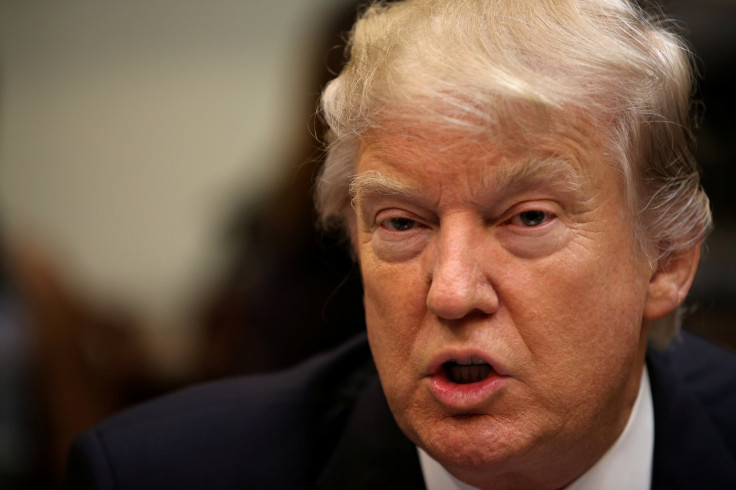Donald Trump Economy 2017: Will 'America First' Tank The Economy? Experts Warn Trump's Trade War Can Cause Sharp Downturn

Business leaders who initially supported President Donald Trump’s pro-business agenda have begun to worry his populist actions may actually damage the economy.
Billionaire Ray Dalio and co-chief investment officer Bob Prince of Bridgewater Associates said in a note to clients Tuesday they are concerned Trump’s populist tendencies will overwhelm his pro-business agenda. Prince and Dalio, who was initially bullish following Trump’s election win, expressed uncertainty as to whether Trump’s aggressive actions are thoughtful or reckless.
“While there is a lot of potential to improve fiscal policies and make beneficial structural reforms, there is also significant risk that his populist policies could hurt the world economy [and worse],” they said in the note obtained by Bloomberg.
Trump last week touted his “America First” policy, signing an executive order pulling the United States out of the Trans-Pacific Partnership (TPP), which he bashed during the campaign as the worst trade deal ever negotiated, and pledging to renegotiate the North American Free Trade Agreement, which he said devastated U.S. manufacturing.
“Nationalism, protectionism and militarism increase global tensions and the risks of conflict. For these reasons, while we remain open-minded, we are increasingly concerned about the emerging policies of the Trump administration,” Dalio and Prince said.
Carlson Capital warned in a quarterly letter to clients that Trump's proposal to tax imports and subsidize exports could touch off a global depression.
Six of Trump’s top campaign aides have formed a nonprofit to back the White House agenda. The formation of America First Policies is aimed at quelling reports of dissent among top Trump campaign advisers who did not follow him to the White House. The group plans to research public policies and promote Trump’s favored causes.
As part of his approach, Trump reorganized the National Security Council, adding White House political strategist Steve Bannon to the mix and downgrading the importance of military and intelligence input, something past administrations took pains to avoid.
On Tuesday, the Cato Institute, a libertarian think tank, described Trump’s "America First" policy as murky -- on one hand indicating he favors isolationism but yet pledging to eradicate Islamist terrorism. Trump has called alliances like NATO into question but his formal speeches indicate a pragmatic approach to trade. Research fellow Emma Ashford cited four options for the Trump administration's foreign policy starting with "true isolationism" as well as "pragmatic power."
"A third option for Trump’s America First doctrine is thus a far less pragmatic 'global crusade,'" according to Ashford.
“Drawing on the views of key advisers like [national security adviser] Michael Flynn and Steve Bannon, Trump could instead embrace a ‘clash of civilizations’ approach to the world. This would subordinate all other foreign policy crises to a campaign against radical Islam, a philosophy that he and various advisers believe includes elements as diverse as Iran, al Qaeda, ISIS and the Muslim Brotherhood.”
The fourth option would be a hands-off strategy akin to former President Ronald Reagan’s “peace through strength” approach.
© Copyright IBTimes 2024. All rights reserved.












